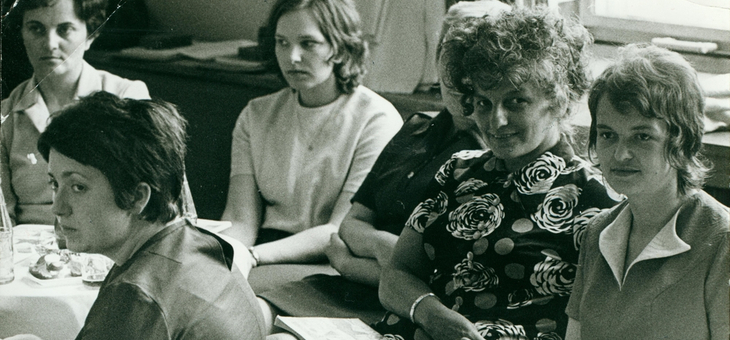When I was growing up in the 1960s, there were few options for careers for women. Or at least not in the social environment I grew up in. Overseas, the feminist movement was beginning to take off with images of women burning their bras flashed across the TV screens. The Australian media took a dim view of this behaviour with often salacious and derogatory comments across the front pages. This was, of course, the time of Robert Menzies and all things conservative.
The rights of women were still something to be shunted to the background, along with those of our Indigenous people and other minority groups. There was still an expectation that women’s work was secondary to that of a man’s and, of course, the only real destiny for a woman was to get married and have a family. Full stop.
Girls could either aspire to be a nurse or a teacher, both caring professions that were seen as suitable for those girls who had a chance of finishing high school. The bank was another option, or possibly the public service, but still these jobs came with the proviso that “you could always come back to them later, or if need be to somehow have part-time work that would fit in around the future family”. The concept of a meaningful career that would unleash your true potential, your chance to reach some form of self-actualisation would have been scoffed at as a ridiculous notion or one where you had ideas above your station.
There was also the underlying assumption that these were somehow ‘safe jobs’, a job for life and they came with the added bonus of a good superannuation scheme that would ensure a decent retirement.
As a young person, I thought both of those things were a strange concept to be concerned about but now I see the devastating effects of the loss of jobs and income on many Australians as we battle our way through a new world of coronavirus.
My parents grew up during the Depression and World War II and came to view the world through a lens affected by both poverty and devastation. They were a product of their time, their experiences and their generation. They valued security, and through the experiences of deprivation had tuned their aspiration to a level of comfort and contentment, rarely thinking to rock the boat or to question the social mores of their day. However, despite neither of them having the chance of a lengthy education, they wanted more for their children, as most parents do. For that I am extremely grateful.
My sister became a nurse and I a teacher and both of us have enjoyed fulfilling careers, though who knows what we may have chosen given a different generational outlook.
Now that the world is going through a major trauma event akin to war, I wonder what values will emerge in the future as we try to grapple with getting on with, at least for the moment, a new way of behaving.
If you enjoy our content, don’t keep it to yourself. Share our free eNews with your friends and encourage them to sign up.
Related articles:
Hot milk, ink and the first frisbee
Putting isolation in perspective
When did I suddenly get old?

